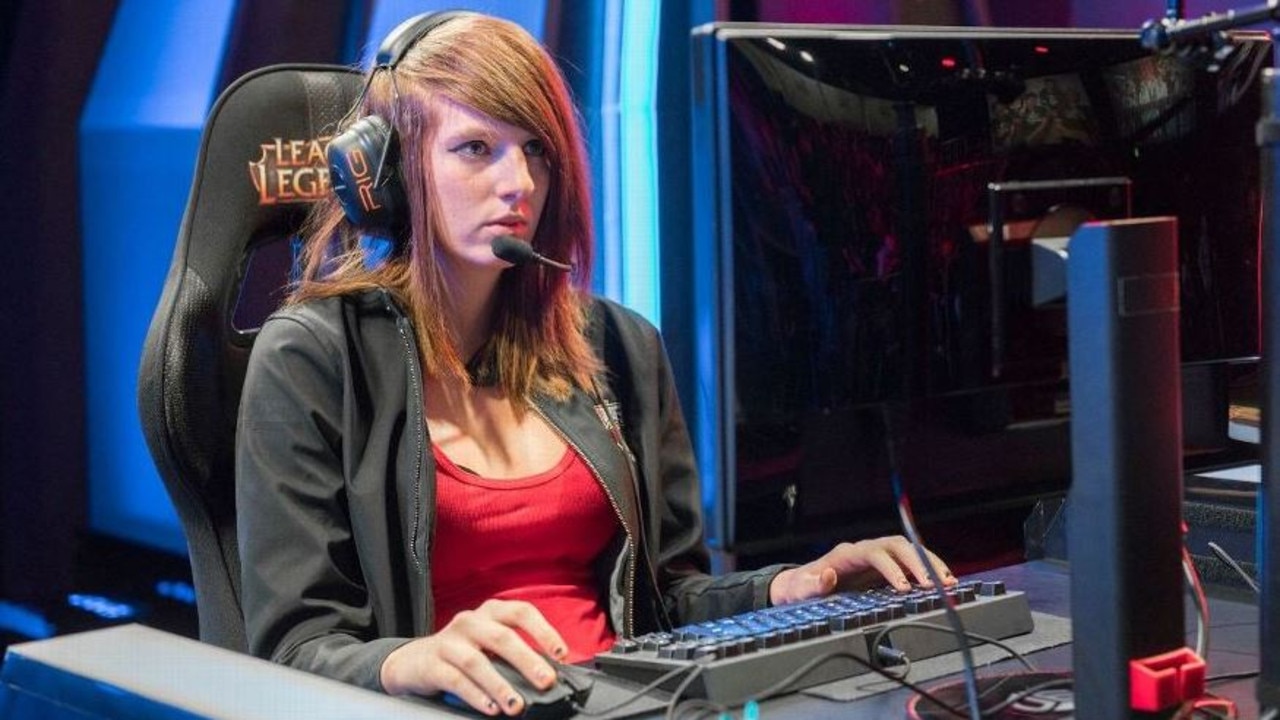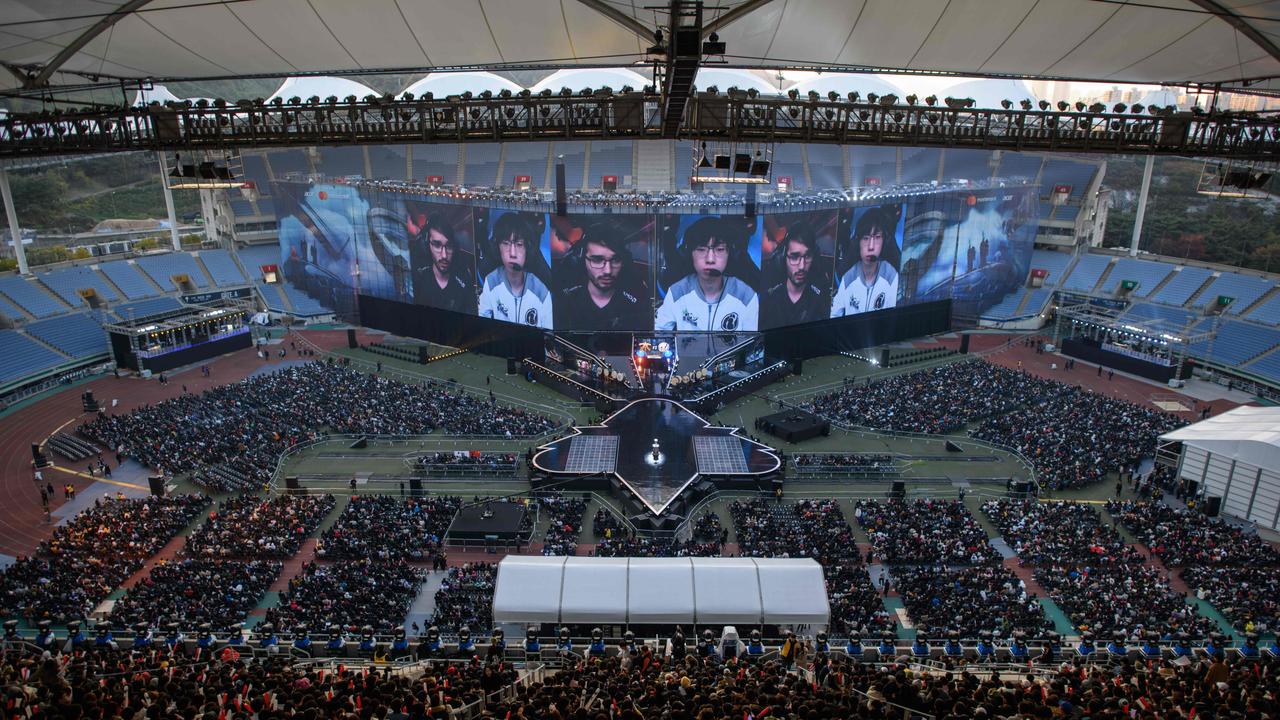First woman to compete in competitive League of Legends dead at 24
She was the first woman to compete at the top level of one of the world’s biggest eSports, but that won’t entitle her to respectful mourning.
A pioneering eSports figure has died suddenly in her home aged 24.
Maria “Remilia” Creveling was the first woman and also the first transgender person to compete in the League of Legends Championship Series (LCS), the top-tier competition for the popular eSports title in North America.
Her friend, award-winning eSports journalist Richard Lewis, broke the news on Twitter over the weekend, and posts also followed from the LCS, her former team, and Ms Creveling’s boyfriend.
She would not have wanted any lengthy statements or grand eulogies. Despite having fans all over the world she was never one who craved the spotlight. My only request is that anyone wanting to pay tribute reach out to ensure that it is done in a manner that respects her wishes.
— Richard Lewis (@RLewisReports) December 28, 2019
My girlfriend Maria died last night, she wouldn't want any lengthy public statement, so all I'll say is the 4 months I knew her were the best of both our lives and although she deserved so much more, it was a privilege to know her for the short time I did. RIP Maria, I love you.
— No Arm Whatley (@WhatleyLeague) December 28, 2019
We mourn the loss of former LCS pro player Maria “Remilia†Creveling and extend our deepest condolences to her family, friends, and fans. pic.twitter.com/a6JPHPWbFw
— LCS (@LCSOfficial) December 29, 2019
We are deeply saddened by the passing of Maria "Remilia" Creveling, who was a former member of our LCS team. She was a major inspiration and role model to many in the esports community. Our deepest condolences to her family and friends. pic.twitter.com/VMGS6nloz8
— Renegades (@Renegades) December 28, 2019
Ms Creveling made it to the LCS in 2016 with the Renegades team, where she was known as a valuable support player, particularly skilled playing the difficult to master Thresh character.
After a teammate had visa issues that prevented them participating, the team slumped to a 1-5 record in the LCS.
Ms Creveling left the team soon after, having had what appeared to be a bitter falling out with Renegades team owner Chris Badawi.

RELATED: Model unleashes on gamer ex-boyfriend
Mr Badawi had also been permanently banned from having anything to do with a team competing in competitions sanctioned by League of Legends developer Riot Games.
Riot decided to ban Mr Badawai for around 18 months after he was initially suspended for trying to poach players from rival teams. During that time, it emerged he had a shady deal in place with the owner of the Renegades team that would allow him to reclaim partial ownership when his ban expired, prompting the permanent ban. The ban also mentioned concerns over the treatment of players but didn’t expand.
Mr Badawi’s issues flared up last year when Ms Creveling shared some scandalous behind-the-scenes details about the team’s run to the LCS and revealed why she’d been missing from the eSports scene.
A botched gender reassignment surgery had left her “entire pelvic area riddled with permanent numbness and intense nerve damage”, Ms Creveling said on her Twitter account, which has since been made private.
That surgery appears to have been part of an arrangement between Ms Creveling and Mr Badawi that led to her joining the team.
“When I first met Maria, I spent hours on Skype with her getting to know her … I told her that if we get into the LCS, I would help her achieve her dream,” Mr Badawi said in a July 2016 Reddit AMA.
“I paid thousands to help her and spent a month alone with her in a foreign country taking care of her while she was recuperating. It is the best thing I have ever done for anyone in my life,” he said.

RELATED: Six arrested over eSports match fixing
When Ms Creveling spoke about the aftermath of the surgery last year, Mr Badawi issued another statement to share his side of the story.
“First of all let me say I am extremely saddened at the difficulties Maria’s surgery has caused her. But to clear up what seems to be a large amount of confusion, and to those who want to really know the truth of what happened, I would appreciate the opportunity to explain it,” Mr Badawi said.
He claimed Ms Creveling “needed and demanded” special treatment when she joined the team. He also contradicted his earlier statement that he had promised to pay for her surgery if they made the LCS on the first call he had with her, saying instead that Ms Creveling presented it as an ultimatum after she had already joined the Renegades.
He said he tried to find her a clinic to conduct the surgery in the United States, but the shortest wait was still two years.
Mr Badawi claimed Ms Creveling told him to look elsewhere, and she decided to go with a doctor in Thailand that had been recommended to Mr Badawi by another member of the eSports community after doing her own research.
It’s understood Ms Creveling also had several mental health issues, and a mental fitness letter was signed by a therapist, reportedly Mr Badawi’s mother, before the surgery went ahead.

In addition to her mental health challenges and the botched surgery, Ms Creveling was also a frequent target of online abuse, bringing up memories of the 2014 #GamerGate controversy where women working in game development and media were targeted in harassment campaigns that included the leaking of their personal information online (otherwise known as “doxxing”) as well as threats of rape and death.
That abuse hasn’t ended with Ms Creveling’s death, and sections of the online gaming community have continued their ugly mocking of the former professional gamer.

It comes as eSports strives for legitimacy as those involved seek to be taken seriously as a real sport.
Despite the targeted harassment, women in eSports are becoming more noticeable, and there are also gender-specific tournaments now, though some question whether that’s necessary.
While many sports are divided along gender lines due to differences that would make it problematic to have women playing alongside men in physical sports like rugby league, video games are a decidedly non-contact sport.
Canadian gamer Sasha Hostyn, a transgender woman better known as Scarlett, competes in Starcraft II and is the only woman to have won a major international tournament in that arena.
She’s described her gender identity as a “complete non-issue” with “absolutely no relevance” on how she plays.
One potential advantage to creating gender specific leagues would be to increase visibility of women in gaming.
In 2015, Pew Research found that roughly the same percentage of adults played video games, regardless of their gender (50 per cent of men compared with 48 per cent of women), but only 6 per cent of women were comfortable labelling themselves a “gamer” compared with 15 per cent of men.



